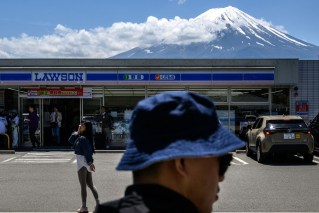Qantas, Virgin are United in competition after US airlines’ expansion

United Airlines will expand its presence in Australia this year following a code-share agreement with Virgin Australia, which could shake up the Australian aviation market and result in lower airfares.
United will operate 66 flights between the US, Australia and New Zealand weekly when all its flights come online.
It’s good news for Aussie flyers, with business travellers and holidaymakers likely to benefit from increased competition and potentially cheaper fares.
“We, as consumers, can virtually choose whether we want to fly on either one … we will see a change in the long-haul market to our advantage,” said Professor Doug Drury, head of aviation at Central Queensland University.
“Qantas will have to match or beat the United tickets, and United is going to come in here and offer some really fantastic pricing.
“This is why competition is good for our industry, and especially consumers in Australia.”
Competition and cheaper fares
The code-sharing agreement would allow United Airlines and Virgin Australia to fly each other’s passengers and promote each other’s routes, increasing the frequency and capacity of flights to and from the US, Professor Drury said.
The agreement would “open up the global market for Virgin” and give United access to all of Australia, and Virgin’s routes.
“This collaboration comes at a crucial time for Virgin, which currently lacks long-haul capabilities after selling off its [Boeing] 777 aircraft,” he said.
What might Qantas do?
The move will affect Qantas’ near-monopoly on long-haul flights in the post-COVID market, according to Professor Drury.
“Qantas has competition with Virgin and United,” he said.
“They will have to look at what they’re charging for long-haul flights, which are very pricey.”

This kind of increased competition might move Qantas to make changes.
As well as offering competitive fares, Qantas might have to enhance its offerings to attract customers and maintain loyalty.
The national carrier lost some of its community standing last year due to poor on-time performance, lost baggage and sub-par customer service.
“They need to step up their in-flight experience to … win the passenger over,” Professor Drury said.
Future partnerships
The partnership could also spur other airlines to action.
Professor Drury speculates that Rex could enter a similar code-share deal with an American airline, such as Delta Airlines, leading to more competition and fluctuating prices.
“Code-share agreements are very common,” Professor Rico Merkert, chair in transport and supply chain management at the University of Sydney, told TND.
“Virgin has other code-share agreements, including with Singapore Airlines, Qatar Airways and Air New Zealand.
“In fact, it had one with Delta until last year and with United being the new US partner, it appears to be the case that United is becoming a more prominent player in our region.”
Australian businesses and the tourism industry will also benefit from codeshare, Professor Merkert said.
“Holidaymakers will have the ability to save a little more on the tickets and spend that on dinners, more side experiences when they get to their destination.
“This increased spending will support local businesses and create a positive feedback loop for the Australian economy.
“It will also bring more consumers to Australia … It’s good all around. And this will bring more Americans to spend money here in Australia.”
ACCC steps up in the name of competition
In a recent report, the ACCC said: “Competition is one of the most important factors determining how much a consumer pays to fly.”
In the spirit of fostering strong competition in the industry, the regulator said on Thursday that it would oppose Qantas’ takeover of Alliance Aviation Services.
It said the $610 million deal would lessen competition in the fly-in, fly-out mining sectors in Queensland and Western Australia.








